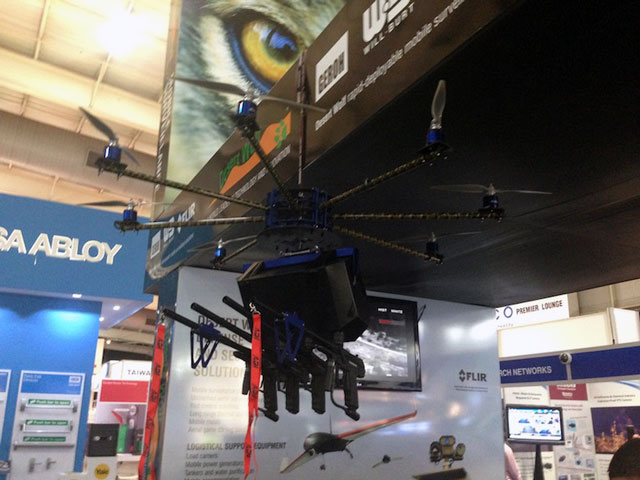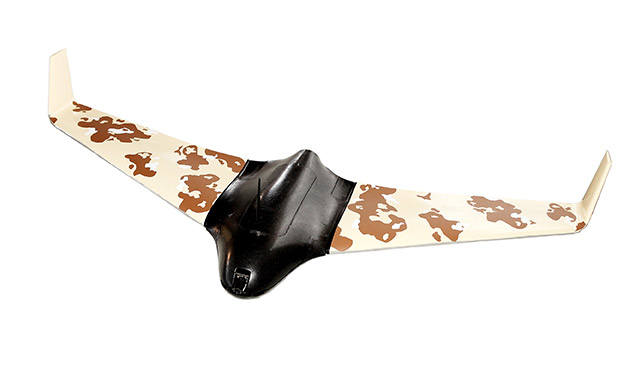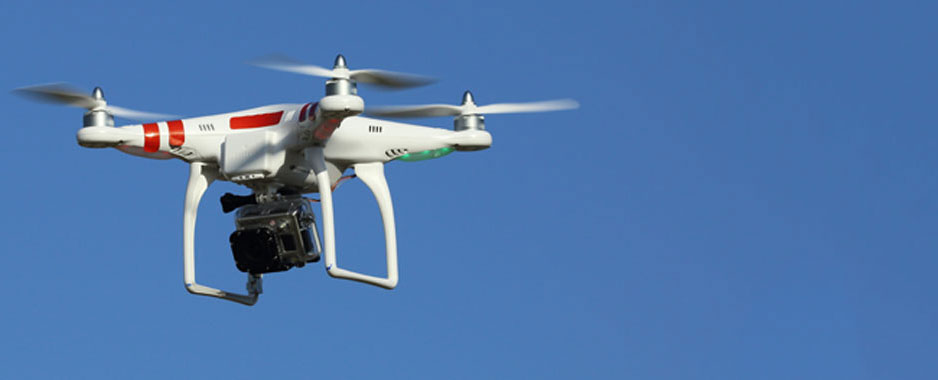
Pretoria-based Desert Wolf made international headlines last month after it emerged that it had developed a drone capable of showering pepper spray on rioting crowds and claiming the technology could be used in “preventing another Marikana”, in reference to the violent protest in August 2012 where 34 striking mineworkers were gunned down by police.
The company’s R500 000 Skunk Riot Control Copter quickly drew condemnation from several quarters. The drone is capable of carriying 4 000 pepper spray-filled plastic balls, which can be deployed at 80 balls per second “stopping any crowd in its tracks”.
The Guardian said labour activists had condemned the Skunk as “absolutely outrageous”, comparing it with deadly US military drones in Pakistan”.
The use of drones, or “unmanned aerial vehicles” (UAVs), has been a topic of hot debate this year. It started at the end of March when Jacaranda FM said it would use drones to monitor and broadcast real-time traffic updates on its website. The project was soon canned after the South African Civil Aviation Authority stepped in. The authority warned that flying drones was against the law.
Desert Wolf director Hennie Kieser blames what he calls the authority’s “inability to get its act together and put legislation in place”. TechCentral met with Kieser at his offices east of Pretoria for a wide-ranging interview on the company and its products, which have both civilian and military uses.
Kieser founded Desert Wolf with his wife, Henriette, a software architect. They started the business 20 years ago to analyse the content and production of beer for South African Breweries.
The husband-and-wife pair later took the company in a completely different direction, building customised offroad trailers for camping. They made a name for themselves as a leader in the field, and militaries from around the world started requesting trailers with military specifications.

One of the first mining companies to seek out the company’s expertise was De Beers, which requested surveillance trailers for its mines. “That was when the company really diversified,” says Kieser. “Today, we have 80 different trailer designs, ranging from recreational to industrial and military. But that is about 1% of what we do these days.”
Trailers to drones
With its trailers, Desert Wolf gave its clients the ability to send equipment across large areas of often rough terrain.
The company diversified again when it began receiving orders to build customised offroad vehicles that could enhance their surveillance trailer’s capabilities. Today, it sells a customised offroad vehicle with military-grade thermal and infrared imaging and built-in control centre for a cool R5m.
Then, four years ago, it started getting requests to develop unmanned aerial vehicle (UAVs, or drones) that provide comprehensive surveillance for the mines, militaries and other applications. In 2012, Desert Wolf launched the Bateleur, a fixed-wing drone with a mounted camera that can be programmed to follow its target. “The Bateleur did very well for us.”
Kieser say UAVs are a disruptive technology and is a fast-growing industry worldwide. It will be Desert Wolf’s core focus over the next 10 years, he says.
“We actually used the Bateleur at Marikana the day that all those people were shot during the riots. Half an hour after we left that day, the shootings happened.”
It was on the way back from Marakana, after they heard the news, that Kieser told his wife: “There must be a better way to control riots like that.” This is where the idea for the Skunk Riot Control Copter started.

Kieser says that he wants to take the human or emotional element out of the confrontation that exists between rioters and the police or security guards. “Technology does not make wrong decisions because it is not fearing for its life.”
It took the company two years of testing before it launched the Skunk two months ago at a commercial and government security exhibition in Johannesburg. The company immediately received an order for 25 units from a client outside South Africa — he declines to name them — and the requests kept coming, particularly from governments.
One Skunk Riot Control Copter can cost north of R500 000, depending on the specification.
Blanket ban
Although the Skunk has drawn huge attention from militaries and security companies around the world, Kieser says that he can’t sell it in South Africa because the Civil Aviation Authority has not established legislation governing drones.
Kieser agrees that you can’t release drones into South African skies without regulations in place, but he says “safety cases can be put together quite easily for some of the most popular commercial uses for drones in South Africa, such as mining, farming and game farms”.
The film production industry, which makes extensive use of drones, has already lost out on big-budget movie projects, he says. “The industry basically came to a standstill three months ago when the aviation authority made its statement.”
It’s not the regulator that should approve licenses, he says. Rather, it should be self-regulated. “Our regulator will never have the capacity or manpower to approve a thousand drone operators,” he says. “It should only be enforcing legislation, putting pressure on the industry to make sure their members are doing what they are supposed to.”
Lack of legislation has in part led Desert Wolf to move its operations to Malta in Europe. Malta is also closer to Desert Wolf’s biggest markets of North Africa and Europe.
“I have to move my operations overseas because I cannot legally test fly drones in the country,” he says. “This is a problem because we also need to train our customers, and this means flying the drones.” — © 2014 NewsCentral Media


